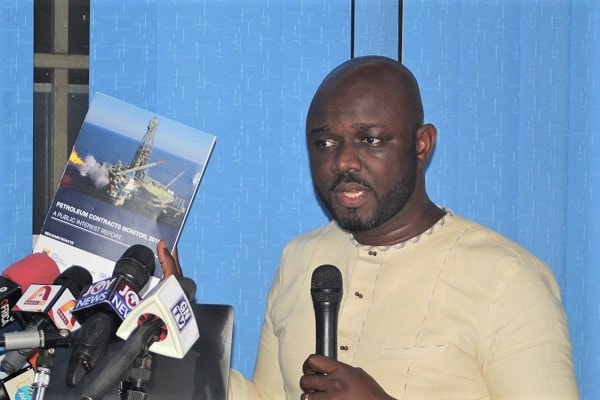Executive Director for African Centre for Energy Policy (ACEP), a think tank in the Republic of Ghana, Benjamin Boakye, has described as welcome assurance by Ghanaian leader, Nana Akufo-Addo that he will do everything possible to see to the resolution of the impasse between Italian oil and gas giant, Eni, and Springfield E&P.
According to him, although President Akufo-Addo’s comment about his resolve to see to the peaceful resolution of the issue is “a bit too late, it is redeemable.”
Mr Boakye revealed that he had the opportunity to write to the Ghanaian leader and insisted that unitisation is a function of science and technology, stressing that in oil and gas industry, science gives meaning to laws.
“Unfortunately, Ghana focused on the law without exhausting the science,” he stated.
The ACEP boss said: “It is only fair to both parties that an indisputable body of evidence is generated to justify unitisation. Again, it must be noted that when the law fails to be an enabler, oil stays in the ground, and the law cannot produce oil.”
The Italian oil and gas company has filed a suit at the International Tribunal in London, in the United Kingdom to challenge a directive by Ghana’s Ministry of Energy, asking Eni and Springfield E&P to unitise Sankofa offshore field operated by Eni and Afina oil block operated by Springfield E&P.
In a statement filed by three renowned lawyers namely Craig Tevendale, Andrew Cannon and Charlie Morgan from Herbert Smith Freehills LLP, Eni is seeking five reliefs from the Tribunal.
The claimant wants the Tribunal to declare that the purported 9th April Directive, 14th October Directive, 6th November Directive and any other steps taken to implement those directives represent a breach of contract under the Petroleum Agreement.
The claimant also wants the Tribunal to declare that the respondents take no further action to implement the purported unitisation of the Sankofa Field and Afina Discovery on the terms of the purported 14th October Directive, the Draft UUOA sought to be imposed by purported November Directive or otherwise.
The third relief the claimant is seeking is an order that the respondent pays damages in an amount to be quantified for the losses suffered by the claimant arising out of the respondent’s breaches of the petroleum agreement, Ghanaian law and International law on a joint and several basis.
Additionally, the claimant is seeking an order that the respondent pays all of the costs and expenses of the arbitration including the fees and expenses of the claimant counsel and any witnesses and/or experts in the Arbitration, the fees and expenses of the Tribunal and the fees of the SCC on a joint and several basis and /or an order such further or other relief as the Tribunal may in its discretion consider appropriate.
It would be recalled that in April 2020, Ghana’s former Minister for Energy, John Peter Amewu issued a directive to Eni and Springfield E&P to begin talks and combine their adjacent oil and gas fields in April and gave them until September 18 to reach an agreement.
The Minister’s directive said that seismic data had indicated Eni’s Sankofa offshore field, which entered production in 2017, and Springfield’s Afina Discovery, had identical reservoir and fluid properties.
“Regrettably, it has become obvious that the parties do not intend to comply with the Ministry of Energy’s directives,” the letter signed by Minister John Peter Amewu said.
A year after the directive, both Eni and Springfield E&P have failed to unitise the Sankofa offshore field and Afina Discovery.
Springfield took the case to a high court in Accra.
The court, in its ruling recently, directed Eni to escrow 30 percent of proceeds from the Sankofa offshore field pending the final determination of the case.
















